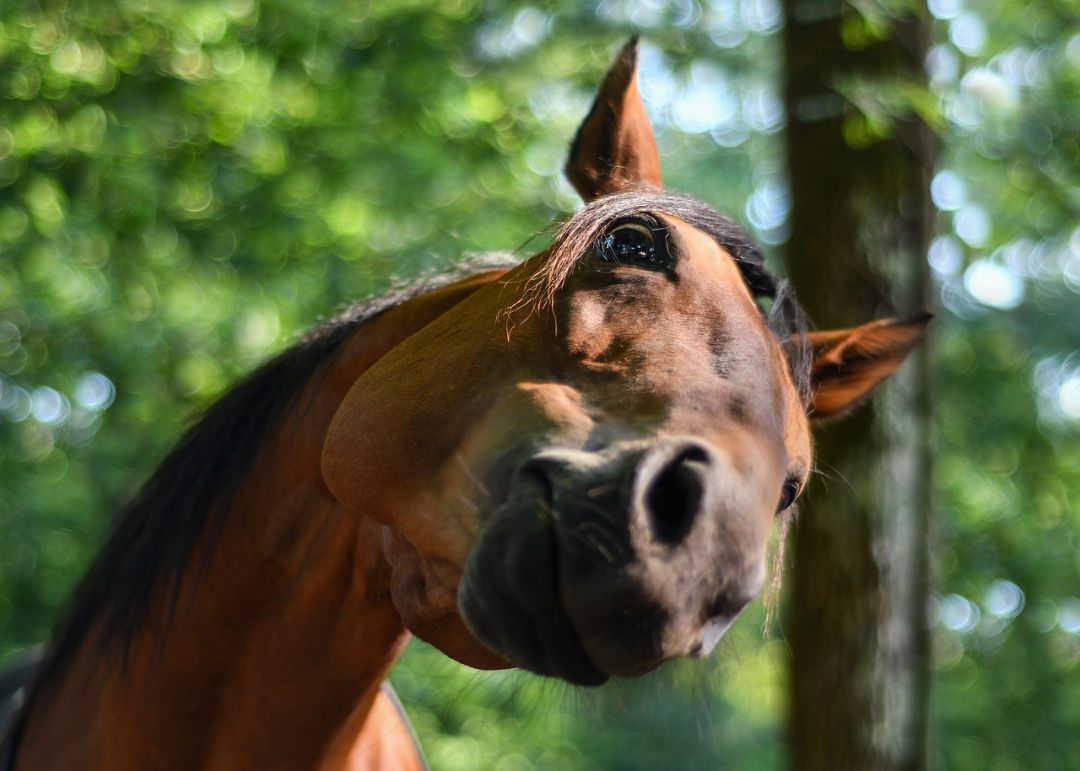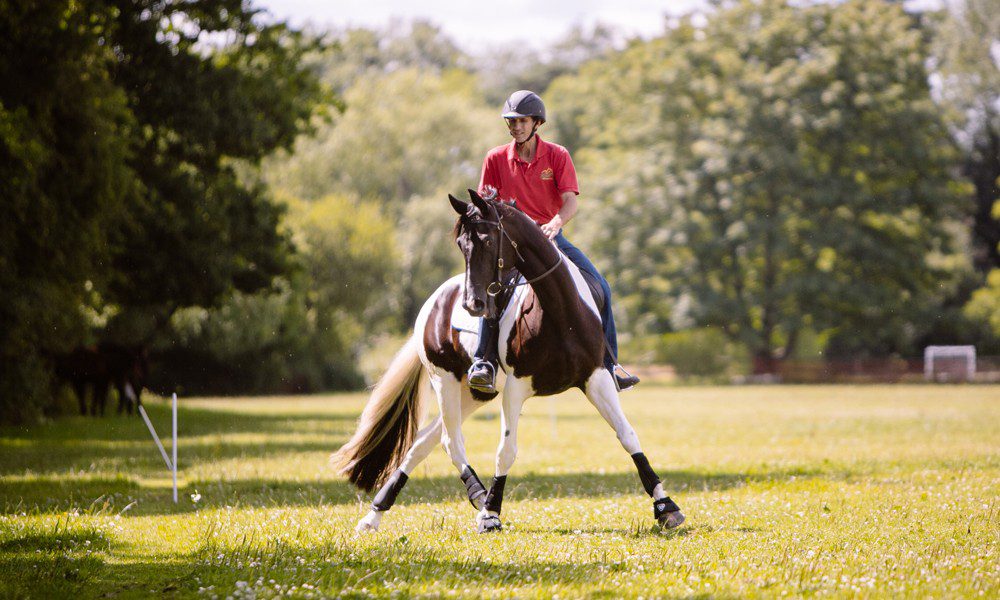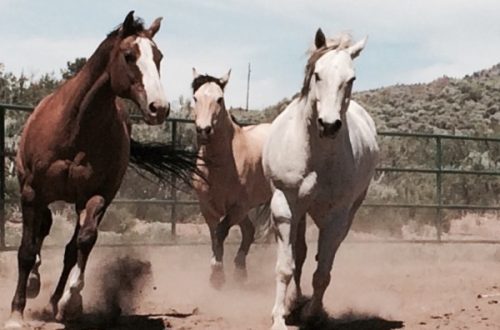
Split personality in a horse – how to deal with it?

Photo courtesy of yourhorse.co.uk
Sometimes in ads for sale we find the following description: “the horse behaves the same way both in competitions and at home.” This usually attracts owners who have already faced the following situation once – as soon as the horse enters the horse carrier, it becomes its complete opposite. And not knowing which side of the horse will be with you on any particular day is depressing to say the least.
Many factors can affect how a horse reacts when he is exposed to unfamiliar conditions. Some horses are more sensitive than others, others are young and not yet accustomed to frequent moves, others just like being outside the house, they just gush with energy. And some horses, shy, or, as they are sometimes called “looking”, behave the same way in their own arena.
However, the fact that the horse behaves completely differently during the tournament can cause certain problems.
Layne Eshker, US triathlete, invites you to think for yourself
“I am convinced that horses neverthey behave badly on purpose. You should always ask yourself the question – am I clear enough to explain all the horses? And if your horse likes to play along, consider how to channel it in a positive direction instead of fighting or punishing the horse.
One of the problems we face is excessive reliance on coaches and waiting for their clues in a difficult situation. If you have a problem with a horse being shy or on edge, you need to think about how to fix the problem yourself. Somehow, we completely forget how to deal with a situation if something doesn’t go as planned.
I can’t say that normal transition work will be enough for these horses. Their attention should be constantly riveted to the rider. Not on other horses, not on creepy flowers, but on you. And if you yourself are losing your nerves at this moment, then this only complicates the situation.
This is where your independent thinking. You need to be sure that you can handle this situation on your own. Distract the horse with work, focus his attention on the transitions, do not give him free time so that he can be distracted. Transitions from the body and the leg, but never by the hand, will help you keep the horse’s attention focused on the rider.
I am not a supporter of chasing a horse so that it blows off steam. Many people don’t know how to lunge a horse properly, and everything they do only makes things worse. When the horse’s head is up, it leads to tension in the back and overworking of muscle groups, resulting in the subsequent pinching of the horse,” Lane says.
Show jumping trainer Missy Clark advises using things that scare a horse into everyday work.

Photo from nupafeed.co.uk
“If my horse is afraid of something, like a ditch, we use an object that scares her in training. As a rule, in the warm-up before the start itself, we can jump over the ditch. Many people use a tarp to cover obstacles and jump over such a barrier. All these methods will help you to accustom the horse to a certain type of obstacles that is terrible for him. Don’t avoid things that scare the horse. On the contrary, use them more often during training.
Some horses take longer to get used to new conditions. I find it useful with this type of horse to spend a little more time on the walk so that they get used to the new parade grounds, different environment, other horses around.
Sometimes I feel uneasy when I see how fast a horse runs on a lunge and, most importantly, it is allowed to do it. When we race our horses, we usually don’t let them go crazy and run the way they want to. We use the reins to keep the situation under control, and when the horse has already “exhaled” and relaxed, in the end, we remove them.
In many cases, the horse gets frightened and winds up, being in a new place for him, only because he has accumulated too much energy. In that case, it’s worth add cord work to the schedule or work to relax. Some horses get nervous because they don’t have much tournament experience, so we always try to adapt the work schedule to help the horse get settled as much as possible,” notes Missy.
Lauren Spreiser, Grand Prix rider, says that the horse must accept the fact that there is an “uncomfortable” situation for him

Photo courtesy of yourhorse.co.uk
“At the end of a workout, I usually work on getting the horse used to what feels uncomfortable. It’s like going to school – there you have to communicate and interact with people, even if you are overly shy. This is our job as riders – expand the horse’s comfort zone.
Some horses can get overexcited during tournaments, but it seems to me that this is most often due to the fact that the horse is inexperienced or too young. So when I meet a rider who is trying to convince me that his horse is behaving horribly in tournaments, I advise them to “take” their horse out of his comfort zone and try to make him accept it as a necessity. Highly it is important to show the horse other places, let her work in a different environment, even if she is nervous at the same time. Every time you do this, it expands the horse’s comfort zone a little, he gets used to it.
Horses are pretty straight forward thinkers. This means that they cannot keep a large number of things in mind. And if something scares the horse, I give the horse a little distraction by making transitions or changing direction. Thus, the horse simply will not have the time or opportunity to think even more about whether to be afraid of a scary tractor or a leaf, ”adds Lauren.
What proven methods do you use to keep your horse calm even outside the home?
Source: www.noellefloyd.com





